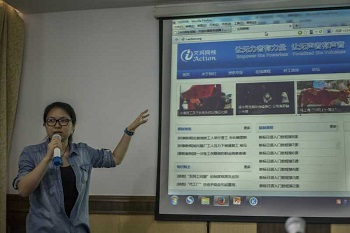Lesson Learned: The project was built around the contribution that social media and E-Learning, through the project web-site, might make to connecting workers to each other and a wider world of knowledge, ideas and practical possibilities, to help them to change their lives for the better. Unfortunately, it was found that young workers were not familiar with computers, had limited access to them, and little time or inclination to work on E-Learning courses. Inexpensive smart phones are favoured by young migrant workers as their tool for communication. However, the phones are used for social purposes and entertainment and have limited capacity for downloading large files. This limited to a considerable degree the relevance of project strategy in this sphere.
